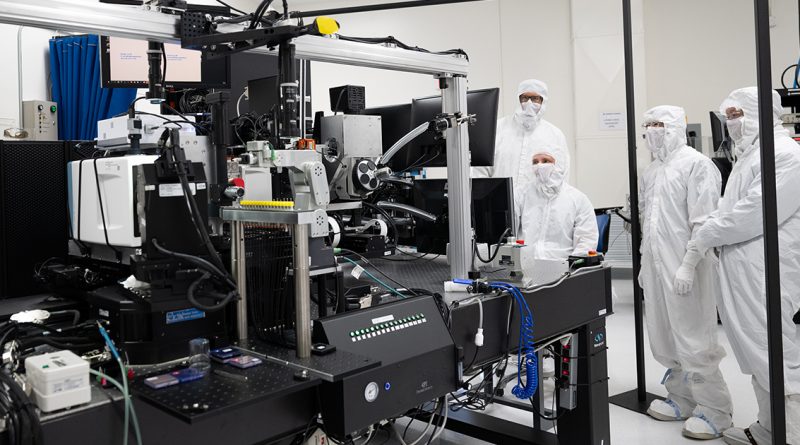G.A. team wins R&D 100 Professional Award for developing history-making technologies that support fusion ignition.
Scientists and engineers at General Atomics (G.A.) in San Diego celebrated this week after members of their inertial fusion technologies team received remarkable news about their work creating technology that helped achieve the first controlled fusion “ignitions” in history.
R&D World, a prestigious technology and innovation magazine, announced that G.A.’s Metrology Research and Development Team has won the 2024 “Team of the Year” R&D 100 Professional Award for creating a groundbreaking system that uses several advanced instruments to examine inertial confinement fusion (ICF) capsules.
The device, known as the 4Pi (pronounced four pie) Integrated Metrology System, is an unprecedented technology that has been pivotal in helping to achieve and repeat fusion ignition at the National Ignition Facility (NIF) at Lawrence Livermore National Laboratory (LLNL). Hailed as one of the most impressive scientific breakthroughs of the 21st century, researchers have achieved fusion ignition at least five times. Scientists said the 4Pi system has been transformative for experiments at NIF.
“We are overjoyed with the news of this recognition and are proud that our team has played a significant role in supporting successful ignition experiments at NIF,” said Haibo Huang, project lead for 4Pi and director of the Center of Excellence in Advanced Diagnostics at General Atomics. “Our goal is to create cutting-edge technologies that help overcome the most complex obstacles that ICF scientists face to support national security missions and bring the world closer to achieving clean and limitless fusion energy.”
In ICF, high-powered lasers rapidly compress target capsules filled with hydrogen fuel, causing the atoms to fuse together and release significant amounts of energy. The targets achieve ignition when the amount of energy released in the reaction exceeds what was delivered to them.
The quality of target capsules is extremely important to achieving fusion ignition, and fabricating these capsules is a highly challenging process. Each capsule is approximately 2mm in diameter—the size of a B.B.—and is fabricated at sub-micron tolerances. The fuel capsules need to be as perfect as possible because the tiniest defects could affect the behavior of the fuel when the target is compressed—meaning abnormalities smaller than 1/100th the diameter of a human hair could stifle ignition.
The 4Pi system uses robotics, automation, and machine learning to automate the examination process of each fuel capsule. The system measures and screens each one to map its unique properties, identify imperfections, and continuously improve throughout the fabrication process.
With so many moving parts in one station, the technical expertise of each team member, from physics and software to engineering, was essential in successfully developing the 4Pi system.
“This award is a testament to the team’s hard work and commitment to developing game-changing technologies and capabilities for our field,” said Mike Farrell, vice president of Inertial Fusion Technologies at General Atomics. “I am confident the 4Pi system will continue to play a significant role in helping scientists understand the fundamental principles of routinely and robustly producing fusion-ignition conditions.”

